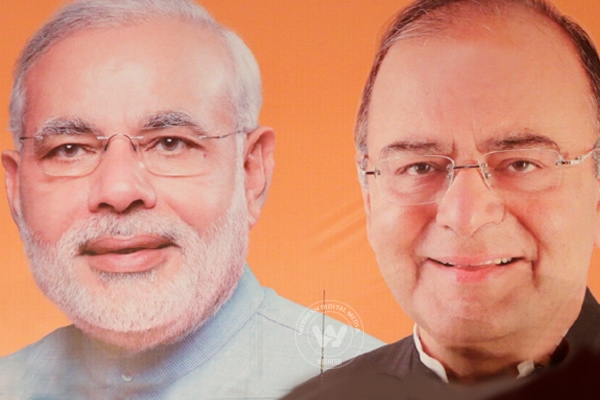
(Image source from: What to expect from Modi's union budget?})
With just weeks to go before Narendra Mod-led government bites the "budget" bullet on July 10, expectations are running high among the "aam junta" and big money alike who can't wait to know how Union Finance Minister will take the shaky Indian economy from drab to fab and what the budget 2014 holds for them.
In all his election speeches, Modi has never missed a chance to tom tom about his “Gujarat Model” and his plans for reviving the country's ailing economy if voted to power. So here we are. With Narendra Modi finally at the helm of things now, the country is awaiting with bated breath for the new changes promised. We take a sneak peek at what the new budget could be like.
Will things be agriculture-wise?
While the complete truth about “Gujarat Model” is not known, one cannot deny the way Gujarat has flourished agriculturally, registering a growth of 10 percent at an average during Modi's 10 year tenure. For those wondering how, know that Modi scripted the success story by taking newly created sources of water to farms and by providing extension service as well as technology to farmers.
Taking cues, Arun Jaitley's budget is likely to be inspired by Modi's agriculture economics. The budget might suggest plans to avail water at every farm as well as introduce new irrigation infrastructure countrywide. All said, the mission is likely to be anything but a cakewalk for the government.
Given that agriculture is a state subject, Jaitley will have to come up with a new agriculture infrastructure policy for each state to invest in irrigation facilities through centrally sponsored schemes.
Also, Modi's plans to give the farmers a profit margin of 50 percent over and above his total input cost might set the food inflation soaring further.
The UPA too vacillated between the conflicting demand of farmers and consumers. When farmers were paid highly for the produce, the consumers suffered higher food inflation. Politically, this would be a tough balancing act for Jaitley and Modi government.
Jaitley has plans to control inflation by releasing food grain stocks from FCI godowns on a large scale to cater to the poor. But in truth, a lot of the food inflation comes from protein items of consumption like eggs, milk and meat products as well as vegetables and fruits. While lowering import duties on some of these protein items from about 30 percent at present to zero could be a solution, doing so could offend the poultry and dairy farmers leading to a new conflict.
With so many difficult political questions posing, it is really to be seen how the Gujarat model will be brought to agriculture at the national level?
Corporate dreams on!
The corporate world, which funded BJP in the recently concluded elections, have huge expectations from budget. The corporate world would want a whole new set of concessions to boost their own balance sheets. But Jaitley will have to tread with caution. Modi explicitly stated to the BJP MPs in the Parliament premises that the government funds were meant for the poor and must be used for the benefit of the poor. Therefore the actions in the first Modi budget cannot be pro-capitalist. Arun Jaitley will have to keep that in mind.
Tax Reforms
Of course, Jaitley can spread some cheer by laying the road map for Goods and Services Tax (GST). Apparently, it was Narendra Modi, who had earlier curbed its quick progress. But now, the BJP can take the brownie points for putting in place a constitutional amendment to rearrange the collection and sharing of indirect taxes by the Centre and states.
The pending Direct Tax Code, a much simplified new Income tax law, which takes away the taxman's discretion, could also be used to comfort the corporate world.
The greatest challenge for Modi and Jaitley will be to balance between big capital, which wants them to adhere to a certain framework, as postulated by the stock markets, and the aspirations of rural and semi-urban India which has voted for the BJP for the want of a better life. This could lead to intense conflict. Some sacrifices surely will have to be made to correct the fiscal path. The big question is who will be at the losing end of the sacrifices — big capital or aam junta?
AW: Suchorita Choudhury










